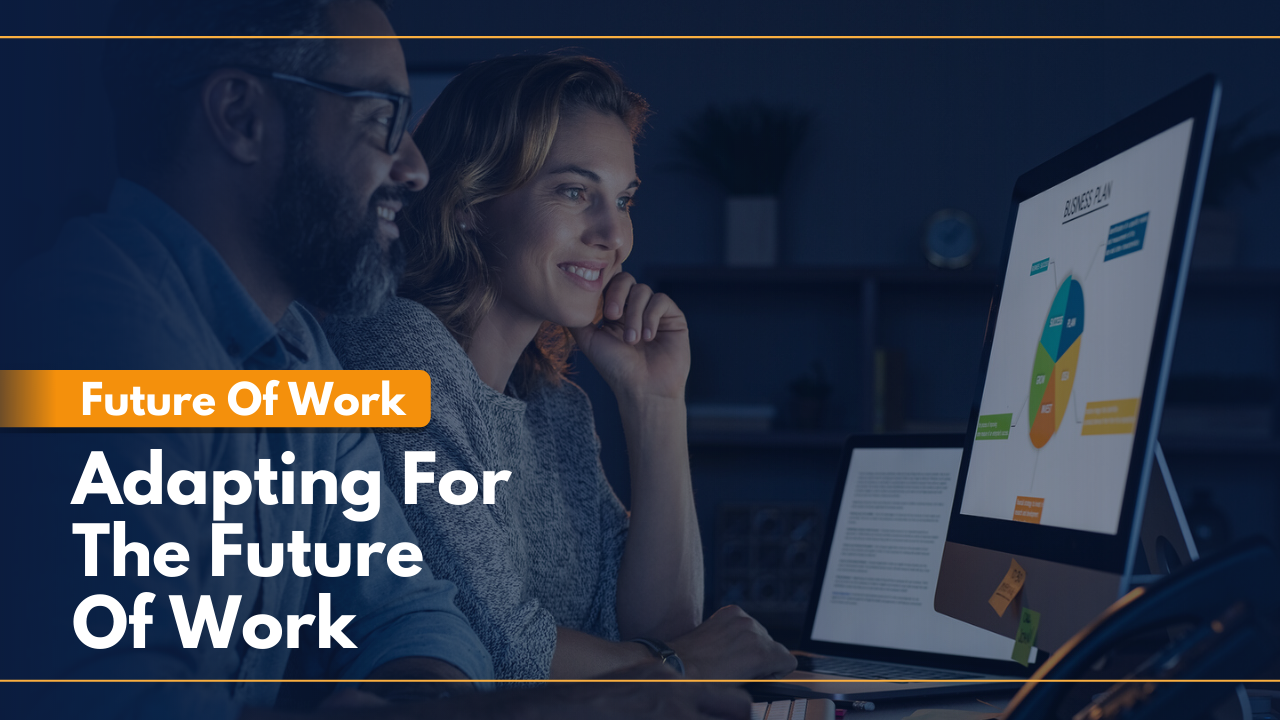- Organizations and workplaces are experiencing sweeping change as the economy moves deeper into the knowledge-focused age.
- Jobs are changing, with many requiring workers with greater social, communications and analytical skills.
- People must take on new skills but those who lack the opportunity to do so could be left behind.
The world is undergoing rapid changes in how, where, when, and what we do in our jobs. But people are not adapting or preparing for these changes fast enough.
This mismatch results in a growing skills gap in the workforce and creates fundamental challenges in filling new roles.
Jobs and Work are Changing
According to Manish Bahl with Cognizent, there are 3 scenarios:
Job is Replaced – 12% at risk
Job is Enhanced – 75% at risk
Job is Invented – 13% at risk
Today, certain jobs are disappearing, the average person is staying in a job for under 3 years before moving, and new jobs are being developed that have never existed before.
In addition, people have the option in many countries and organizations to work remotely or flexibly. There are also fully remote organizations that have never had a central office.
In short, what we thought when we pictured work 30 years ago is not what it is today, and it won’t be what it looks like 30 years from now.
Why is this important?
Work is Changing Quickly but People are Slower to Change
Organizations, jobs, and roles are changing at a phenomenal pace. However, it’s not technology or the hard skills that present the greatest challenge.
The hardest part of implementing change are people.
“The announcement is the easy part; it makes the manager look bold and decisive. Implementation is more difficult, because no matter how good and compelling the data, there will always be active and passive resistance, rationalizations, debates, and distractions – particularly when the changes require new ways of working or painful cuts. To get through this, managers have to get their hands dirty, engage their teams to make choices, and sometimes confront recalcitrant colleagues.” — You Can’t Delegate Change Management from the Harvard Business Review (HBR) by Ron Ashkenas and Rizwan Khan”
Since people are resistant to change and the hard skills of many roles are changing, we need to look at how we empower the masses to change instead of having change pushed onto them.
The Importance of Soft Skills
According to LinkedIn’s 2019 Global Talent Trends report, “80% say soft skills are increasingly important to company success.”
The report also said that “Soft skills have always been important, and they’re increasingly vital today. The rise of automation and artificial intelligence means that hard skills alone are no longer enough to be successful.”
“And while the half-life of many hard skills is shrinking, soft skills stay relevant: a particular programming language may go out of fashion, but creativity, adaptability, and collaboration skills will always be valuable.”
Without a doubt, we will need new skills and knowledge for the future of work. However, we don’t completely know what or when we will need them.
What we do know is that certain soft skills are valuable no matter what the change.
1. Emotional Intelligence and Reflection
2. Communication
3. Problem solving and critical thinking skills
4. Collaboration
5. Adaptability
6. Creativity
Whether it’s being able to adapt better to a changing work environment, improving collaboration among colleagues or just being able to understand yourself better and how you react (Emotional intelligence), these skills give us a greater ability for understanding the world around us, solve problems, and get our point across.
Continuous Improvement through Lifelong Learning
According to a Pew Study on The State of the American Workforce in 2016, “Tectonic changes are reshaping U.S. workplaces as the economy moves deeper into the knowledge-focused age. These changes are affecting the very nature of jobs by rewarding social, communications and analytical skills. They are prodding many workers to think about lifetime commitments to retraining and upgrading their skills.”
“More than half (54%) of adults in the labor force say it will be essential for them to get training and develop new skills throughout their work life in order to keep up with changes in the workplace. And 35% of workers, including about three-in-ten (27%) adults with at least a bachelor’s degree, say they don’t have the education and training they need to get ahead at work.”
For example, in an article on “What makes a high potential remote worker”, Ian Macrae and Roberta Sawatzky say that “Remote workers once accounted for a tiny minority of employees, but some estimates now suggest that 2020 will see up to 50% of the workforce being based remotely… As remote and flexible working increases employers need to better understand how to select, manage and develop employees operating in a remote working environment.”
Organizations, governments, and academic institutions are already starting to support the changing needs of our roles and careers, however, it is also critical that individuals take ownership in these changes.
Whether it is going back to school, partaking in an online course, learning how to identify their ideal workspace environment, taking a continuing education or L&D program within an organization, or reading and studying a new topic, knowledge has become even more available globally than it has ever been.
Peter Drucker said, “The best way to predict your future is to create it.”
I have always liked the idea that we often overestimate what we can do in a year but underestimate what we can do in a decade.
By continually developing our soft skills and learning new skills, habits and knowledge, we gain a greater control in our future instead of the future just happening to us.
Change in the Different Stages of Life
A study on the Lifespan Perspectives on Careers and Career Development says that “Because needs and priorities of workers change over their life course, and are also influenced by contextual factors, it is important to examine and describe these changes, even more so because the workforce is aging and older workers represent a steadily growing proportion of today’s workforce.”
It also states: “Workers today require intrinsically motivating work that meets their values, significant relationships with coworkers, and fulfillment of their emotional needs through work, throughout their whole lifespan, and put general emphasis on subjective career success.” Nagy, Noémi & Froidevaux, Ariane & Hirschi, Andreas. (2018). Lifespan Perspectives on Careers and Career Development. 10.1016/B978-0-12-812756-8.00010-4.
Each segment of the population will often need a different curriculum, approaches, skills, techniques, and options depending on their time of life, their interests, and their context.
Where do you fit?
- Pre-school, Kindergarten, Primary School, Middle School
- High School / College
- University, College, Postgraduate
- First Job, First loss or change of job
- Unemployed
- Poverty, Homeless
- Marriage, Divorce
- Kids
- 10, 20, 30 Years of Working
- Mid Life Crisis
- Retiring soon
- Retired
- In a career path that is likely to experience significant impacts from AI and future of work topics
- In a career path with more minor role changes due to AI and future of work
For example, what does a person in their 10th year of working need that a Kindergarten student doesn’t?
Needs will be different on a person by person basis, however, the younger student often has less bias and fewer habits and ingrained behaviors than an older person in the workforce. The people that are currently in the workforce need to focus more on what they are doing now and how to overcome where they are today instead of just learning something new.
Working with younger students and educational programs is important, however, we need to also focus on the billions of people currently (and soon to be) in the workforce and their specific needs in order to create greater change today.
Without the Ability to Adapt, Many People will Be Left Behind
If governments, organizations or individuals don’t focus more on these items, then many people are likely to get left behind.
However, why wait and what will be lost if we wait?
With a scale of change that is ever growing, more and more people will need to start changing and gaining new skills to succeed. For those that have already been marginalized, they could be further behind.
We can’t predict the future, but we do know that one thing is for sure: change is inevitable.
Without the opportunity, tools and the skills to find your way in this world, I worry that many people will be left behind in the coming decades and the world will be worse off for it.
Let’s get moving.
How are you and your organization changing to meet the needs of the workforce and the workplace? Tell me about it.



 Dr. Gleb Tsipursky – The Office Whisperer
Dr. Gleb Tsipursky – The Office Whisperer Nirit Cohen – WorkFutures
Nirit Cohen – WorkFutures Angela Howard – Culture Expert
Angela Howard – Culture Expert Drew Jones – Design & Innovation
Drew Jones – Design & Innovation Jonathan Price – CRE & Flex Expert
Jonathan Price – CRE & Flex Expert












